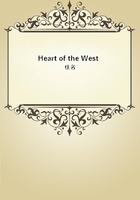
第55章 THE SPHINX APPLE(3)
"See what I found, Mrs. McFarland!" he cried, vaingloriously. He held the apple high up in the light of the fire, where it glowed a still richer red. The lady passenger smiled calmly--always calmly.
"What a charming apple!" she murmured, clearly.
For a brief space Judge Menefee felt crushed, humiliated, relegated.
Second place galled him. Why had this blatant, obtrusive, unpolished man of windmills been selected by Fate instead of himself to discover the sensational apple? He could have made of the act a scene, a function, a setting for some impromptu, fanciful discourse or piece of comedy--and have retained the role of cynosure. Actually, the lady passenger was regarding this ridiculous Dunboddy or Woodbundy with an admiring smile, as if the fellow had performed a feat! And the windmill man swelled and gyrated like a sample of his own goods, puffed up with the wind that ever blows from the chorus land toward the domain of the star.
While the transported Dunwoody, with his Aladdin's apple, was receiving the fickle attentions of all, the resourceful jurist formed a plan to recover his own laurels.
With his courtliest smile upon his heavy but classic features, Judge Menefee advanced, and took the apple, as if to examine it, from the hand of Dunwoody. In his hand it became Exhibit A.
"A fine apple," he said, approvingly. "Really, my dear Mr. Dudwindy, you have eclipsed all of us as a forager. But I have an idea. This apple shall become an emblem, a token, a symbol, a prize bestowed by the mind and heart of beauty upon the most deserving."The audience, except one, applauded. "Good on the stump, ain't he?"commented the passenger who was nobody in particular to the young man who had an Agency.
The unresponsive one was the windmill man. He saw himself reduced to the ranks. Never would the thought have occurred to him to declare his apple an emblem. He had intended, after it had been divided and eaten, to create diversion by sticking the seeds against his forehead and naming them for young ladies of his acquaintance. One he was going to name Mrs. McFarland. The seed that fell off first would be--but 'twas too late now.
"The apple," continued Judge Menefee, charging his jury, "in modern days occupies, though undeservedly, a lowly place in our esteem.
Indeed, it is so constantly associated with the culinary and the commercial that it is hardly to be classed among the polite fruits.
But in ancient times this was not so. Biblical, historical, and mythological lore abounds with evidences that the apple was the aristocrat of fruits. We still say 'the apple of the eye' when we wish to describe something superlatively precious. We find in Proverbs the comparison to 'apples of silver.' No other product of tree or vine has been so utilised in figurative speech. Who has not heard of and longed for the 'apples of the Hesperides'? I need not call your attention to the most tremendous and significant instance of the apple's ancient prestige when its consumption by our first parents occasioned the fall of man from his state of goodness and perfection.""Apples like them," said the windmill man, lingering with the objective article, "are worth $3.50 a barrel in the Chicago market.""Now, what I have to propose," said Judge Menefee, conceding an indulgent smile to his interrupter, "is this: We must remain here, perforce, until morning. We have wood in plenty to keep us warm. Our next need is to entertain ourselves as best we can, in order that the time shall not pass too slowly. I propose that we place this apple in the hands of Miss Garland. It is no longer a fruit, but, as I said, a prize, in award, representing a great human idea. Miss Garland, herself, shall cease to be an individual--but only temporarily, I am happy to add"--(a low bow, full of the old-time grace). "She shall represent her sex; she shall be the embodiment, the epitome of womankind--the heart and brain, I may say, of God's masterpiece of creation. In this guise she shall judge and decide the question which follows:
"But a few minutes ago our friend, Mr. Rose, favoured us with an entertaining but fragmentary sketch of the romance in the life of the former professor of this habitation. The few facts that we have learned seem to me to open up a fascinating field for conjecture, for the study of human hearts, for the exercise of the imagination--in short, for story-telling. Let us make use of the opportunity. Let each one of us relate his own version of the story of Redruth, the hermit, and his lady-love, beginning where Mr. Rose's narrative ends--at the parting of the lovers at the gate. This much should be assumed and conceded--that the young lady was not necessarily to blame for Redruth's becoming a crazed and world-hating hermit. When we have done, Miss Garland shall render the JUDGEMENT OF WOMAN. As the Spirit of her Sex she shall decide which version of the story best and most truly depicts human and love interest, and most faithfully estimates the character and acts of Redruth's betrothed according to the feminine view. The apple shall be bestowed upon him who is awarded the decision. If you are all agreed, we shall be pleased to hear the first story from Mr. Dinwiddie."The last sentence captured the windmill man. He was not one to linger in the dumps.
"That's a first-rate scheme, Judge," he said, heartily. "Be a regular short-story vaudeville, won't it? I used to be correspondent for a paper in Springfield, and when there wasn't any news I faked it. Guess I can do my turn all right.""I think the idea is charming," said the lady passenger, brightly. "It will be almost like a game."Judge Menefee stepped forward and placed the apple in her hand impressively.